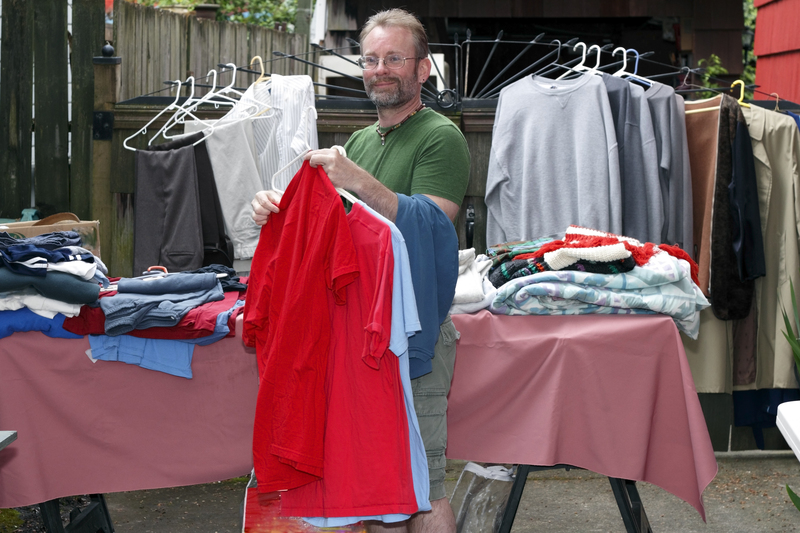Tricks for Minimizing the Cost of Bulky Item Disposal
Disposing of large or bulky items--such as furniture, mattresses, appliances, or outdoor equipment--can quickly become expensive and troublesome if you don't know where to start. Instead of paying high fees for heavy waste pickups or landfill drop-offs, there are several clever ways to save money and get rid of your unwanted belongings responsibly. In this comprehensive guide, we'll show you budget-friendly tricks for minimizing the cost of bulky item disposal, while also helping you make eco-conscious choices that benefit both your wallet and the environment.

Understanding Bulky Item Disposal
Bulky waste refers to items that are too large and heavy for regular trash collection. These might include sofas, old bed frames, appliances, outdoor grills, hot tubs, carpets, playground equipment, and more. Because of their size, disposing of these items requires special handling, and the cost can add up.
Many people initially turn to their local municipal services, but these often come with a fee or are offered only on certain days. Luckily, there are numerous tips and tricks for reducing bulky disposal costs that savvy homeowners, landlords, and renters can use to make the process more affordable and efficient.
Why Can Bulky Waste Disposal Be Expensive?
Bulky item disposal services often charge for:
- Fuel, vehicle use, and labor
- Landfill or processing facility fees
- Special permits or licenses for certain items
- Environmental surcharges for items like refrigerators or electronics
- Limited pick-up availability and minimum charges
By understanding why these costs exist, you can deploy effective strategies to avoid them whenever possible.
1. Donate Items in Good Condition
Before anything goes to the landfill, ask yourself: Could someone else use this item? Many charitable organizations, thrift stores, shelters, and social programs will gladly accept gently used furniture, appliances, and building materials. Some even provide free pick-up!
Donation Tips for Bulky Items
- Contact local charities like Goodwill, Salvation Army, Habitat for Humanity ReStores, or church groups.
- Check online donation networks such as Freecycle, Facebook Marketplace, or Craigslist--post your item as "free for pickup."
- Some organizations specialize in specific items (e.g., mattresses, appliances, or computers), so research your region's options.
- Always confirm pick-up availability. Some charities may only accept drop-offs or may not take certain items due to size, cleanliness, or safety concerns.
By donating, you not only help others but also potentially receive a tax deduction for your generosity.
2. Schedule with Municipal Bulk Waste Pick-Up
Most cities and towns offer bulky waste pick-up days--either for free, at a discounted rate, or as part of your existing trash collection fees.
How to Maximize Savings with Municipal Pick-Up
- Check your city or county's public works department website for the next available date and accepted items.
- Coordinate with neighbors. If your area has a limit on the number of items per pickup, ask if anyone else needs disposal. Sometimes collective arrangements are allowed under one booking.
- Follow all guidelines to avoid fines--properly wrap, stack, or label items as required.
- If you miss a free pick-up window, consider waiting for the next one rather than paying for private haulers.
This is one of the cheapest ways to dispose of bulky items if you can plan ahead.
3. Sell Your Bulky Items for a Profit
If your bulky items are still in good or repairable condition, consider selling them. Not only does this turn your old possessions into cash, but it also saves you the cost of disposal and helps items find a second life.
Platforms for Selling Bulky Items
- Facebook Marketplace
- Craigslist
- Letgo or OfferUp
- Nextdoor app
- Yard sales or garage sales
When listing your items:
- Provide accurate descriptions and clear photos
- Highlight that buyers must arrange their own transportation or pick-up
- Price items to sell quickly, especially if moving or renovating on a tight timeline
_Selling can be one of the most rewarding tricks for minimizing the cost of bulky item disposal since you earn money and have the item promptly removed._
4. Repurpose, Reuse, or Upcycle
With a bit of imagination, you can often repurpose or upcycle bulky items into something useful or decorative for your home or garden. This not only reduces bulky item disposal costs, but you're also promoting sustainability.
Creative Repurposing Ideas
- Turn doors into tables or headboards
- Convert wood pallets into garden planters or furniture
- Use old dresser drawers as under-bed storage bins
- Create outdoor benches from retired bathtubs or vanities
- Transform old chairs into plant stands
Explore platforms like Pinterest, YouTube, or DIY blogs for endless upcycling inspiration.
5. Break Down Bulky Items Yourself
Often, disassembling or breaking down bulk items makes them eligible for regular trash pick-up, reduces the cost of landfill drop-off (fewer cubic feet), or makes them easier for haulers to handle.
How to Safely Disassemble Bulky Items
- Check with your local waste authority on acceptable trash sizes
- Use basic tools such as screwdrivers, a handsaw, or a box cutter to separate materials
- Separate recyclable parts (e.g., metal, wood, plastic, glass) and sort accordingly
- Make sure any hazardous components (like fridge refrigerant or electronics) are handled per law
Carefully breaking down your items not only minimizes the cost of disposing bulky waste but also makes recycling easier and may even allow you to use free waste days.
6. Compare Private Hauling and Junk Removal Services
If your municipality doesn't offer bulky pickup options, or you have urgent needs, private junk removal companies can help--but their costs vary significantly. Shop around and ask several companies for estimates.
Tips for Saving Money with Junk Removal Services
- Get multiple quotes and ask for price matching
- Opt for curbside pickup instead of in-home removal, which is often cheaper
- Group all unwanted items together to maximize the use of a minimum load fee
- Ask if the company offers discounts for items that can be donated or recycled
- Split costs with neighbors or family if you have overlapping needs
Remember: If you're on a tight budget, always check the Better Business Bureau and read customer reviews before selecting a hauler.
7. Use Community Clean-Up Events
Many towns, apartment complexes, or homeowner associations host periodic clean-up events, where residents can ditch large items at little to no cost.
Ways to Take Advantage of Community Clean-Ups
- Keep an eye on your community bulletin, newsletters, or local government website for announcements
- Ask property managers if and when dumpsters or collection days are scheduled
- Volunteer to help--you may gain early access or additional disposal privileges
Community events are excellent low-cost solutions for bulky trash disposal, since costs are often shared widely and subsidized by local budgets or membership fees.
8. Rent or Borrow a Truck for DIY Drop-Off
If you have several items to dispose of and the cost of hiring a hauler seems too high, consider renting (or borrowing) a suitable vehicle--a pickup truck, trailer, or van--and delivering items directly to your area's landfill, transfer station, or recycling center yourself.
DIY Drop-Off Cost Saving Tips
- Combine loads with friends, neighbors, or family to split fuel and rental costs
- Check if your local landfill or recycling center accepts certain items for free or at reduced rates
- Sort materials in advance for faster and cheaper drop-off (many sites charge less for pure loads vs. mixed trash)
- Look out for "free dump day" events, often around spring or fall clean-up seasons
_DIY drop-off is often one of the most affordable options for disposing of multiple bulky items._
9. Recycle Specialty Bulky Items
Some bulky waste items--such as electronics (e-waste), appliances, tires, or metal scrap--are prohibited from landfills in many areas. Instead, seek out specialized recycling programs, many of which are free or much cheaper than landfill disposal.
How to Recycle Special Items
- Find local e-waste recycling days for TVs, computers, and phones
- Scrap metal yards often pay for items like appliances or metal bed frames
- Retailers and manufacturers run take-back programs for old fridges, stoves, or mattresses (sometimes with rebates)
- Check state or county hazardous waste drop-off events for paints, chemicals, or batteries
Recycling not only saves on disposal costs but also ensures that the environment is protected from hazardous waste.

10. Avoid Costly Mistakes
Remember, improper disposal can result in hefty fines or legal trouble--not to mention environmental harm. Always:
- Read your local disposal laws before leaving anything on the curb
- Don't dump items on public land
- Never burn or bury bulky waste
By sticking to responsible methods, you save money and avoid additional penalties down the road.
Conclusion: Declutter Smarter and Save
Bulky item disposal doesn't have to drain your bank account. By using clever, resourceful, and eco-friendly techniques--from donating, selling, and repurposing to timing your disposals with free or community events--you can dramatically cut the costs associated with getting rid of oversized junk. Whether you're moving, renovating, or simply clearing out your home, these smart tricks for minimizing the cost of bulky item disposal will help you declutter with confidence, keep your neighborhood looking its best, and support a greener planet.
Have you tried any of these techniques? Share your own experiences and tips for affordable bulky waste disposal in the comments below!
